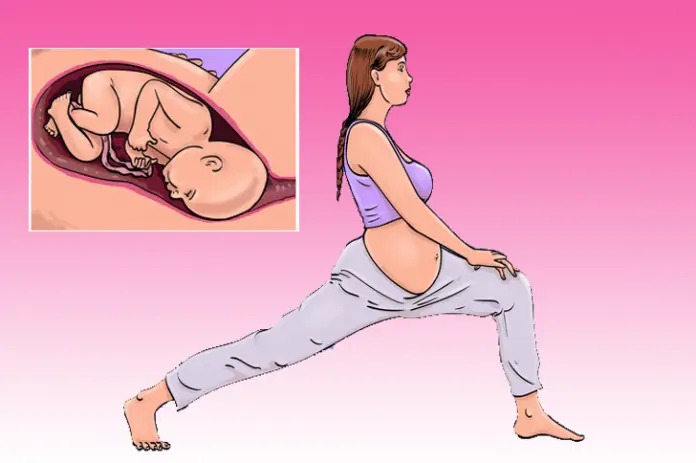Exercise during Pregnancy: You want to continue your regular Exercise during Pregnancy. But you’re not sure how or even if you should. Forget those worries! Personal experience combined with extensive research has shown us that working out is possible and beneficial as long as you keep a few simple guidelines in place.
After a thorough review, we found that beginning an appropriate workout routine during pregnancy, including strength training, is acceptable even for a woman without previous strength training experience if she uses our guidelines.
(We recommend adequate guidance and supervision if you have not had any previous strength training experience or it’s been a while since you participated in an exercise program.) Of course, all workouts should be approved by a licensed physician.
Working out and Exercise during Pregnancy
Exercise during pregnancy has also proven beneficial in returning to shape after the baby. You can usually get a doctor’s release soon after delivery and begin your postpartum workouts.
Women have found that they look forward to returning to their fitness routine; doing so positively affects the new mother’s self-esteem and mood.
Your fitness routine should be designed to fit you as an individual, and each aspect of your fitness routine is equally important.

The three significant elements of any fitness routine are stretching, aerobic exercise (cardio), and strength training. We will focus on strength training, and it is essential to incorporate aerobic exercise and to extend to complete your routine.
Aerobic exercise is imperative to keep your heart healthy and to build up endurance for labour.
A few recommended choices for an excellent aerobic workout include:
- Walking (on a treadmill or outdoors if the weather permits).
- Swimming.
- A low-impact aerobics floor routine.
- Using an elliptical trainer or stationary bike.
Your cardio session during pregnancy should last between ten to thirty minutes, depending on your fitness level and ability.
Benefits of working out during pregnancy
§ Easier Labor and Delivery
During exercise, there is an increase in beta-endorphin levels. These increases are even higher during pregnancy. Beta-endorphin is a hormone that is believed to decrease your perception of pain.
Women who exercise regularly showed lower perceived exertion and pain during labour and an improved course of labor. Other studies show a shorter duration of labour and fewer obstetrical complications.
§ Fewer Associated Discomforts
Studies show that exercise during pregnancy increases energy levels and improves self-image, maternal fitness, and physical capacity. Studies also show decreased discomforts such as back pain, hip pain, leg cramps, varicose veins, fatigue, nausea, leg swelling, haemorrhoids, and pregnancy weight gain. Exercise during pregnancy can also combat depression and fatigue.
§ Improved Health of Your Baby
Women who work out gain less weight, and their babies typically have a smaller fat percentage at birth. These babies also maintained lower body fat percentages into childhood. With the rate of the childhood obesity epidemic in the country, this is an added benefit you may not have considered.
§ Decreased Risk of Gestational Diabetes
Exercise has been used as an adjunct to the treatment of gestational diabetes. It may also lower the need for insulin in some patients.
§ Decreased risk of osteoporosis
Strength training has been linked to slowing or preventing bone loss. Pregnancy can contribute to bone loss, predisposing you to osteoporosis later in life. Strength training keeps bones healthy, slowing bone loss.
§ Smarter Baby
Research suggests that language skills in children tested at age five are superior in children whose mothers had exercised throughout pregnancy, as opposed to those whose mothers did not exercise while pregnant.
Why Strength training during pregnancy necessary?
Strength training, also known as resistance training or weight training, is proven to strengthen muscles and bones. It can be a full-body workout with full-body benefits. Weight-bearing activity is shown to burn more fat than carbohydrates, leaving energy for building your baby.
Although we feel that strength training is as vital as aerobic training for endurance, when done in conjunction, the results are priceless. Having solid muscles correlates with a strong mind and spirit.

Read More bout: Nutrition for pregnancy
Our research found that strength training during pregnancy drastically improves a woman’s self-image, energy level, and overall attitude.
More importantly, the health benefits for mothers and children are significant. Yoga, water aerobics, and walking are all excellent forms of exercise, but our studies show more beneficial results with strength training in conjunction with these other forms of exercise.
Mothers who work out during pregnancy easily stay within the “normal” weight gain range, are less likely to develop gestational diabetes and experience less swelling.
Strength Training During Pregnancy Precautions And Guidelines
– Heart Rate
Your heart rate at rest increases by ten to twenty beats per minute during pregnancy, so it will take less exercise to elevate your heart rate. Therefore, make sure you keep your
heart rate in the “Safe Zone,” which should fall between 110 and 150 beats per minute (depending on your target heart rate [THR]) to produce positive effects for you and the baby. As your heart rate increases, so does the babies.

However, no studies indicate these increases have any detrimental effects on the fetus. Be sure to check your heart rate frequently or wear a heart rate monitor with an alarm.
When you check your rate, which is above your THR, or if the alarm on your monitor goes off, stop an exercise until your heart rate returns to the “Safe Zone.”
Exercise Schedule
We recommend that you maintain a minimum of two strength training days and a minimum of one aerobic Workout per week.
You can add up to two strength training days and up to five aerobics days if you feel up to it. Each Workout should last about ten to sixty minutes. Studies show that the positive effects of exercise during pregnancy are lost if not maintained throughout all three trimesters.
Core Body Temperature

HP is critical that your core body temperature does not exceed 102 degrees Fahrenheit. Research has shown that exceeding this limit is very hard to do, but err on the side of caution, avoid high-intensity outdoor workouts during the summer months and have proper ventilation for indoor activities.
Also, do not exercise outside in hot or humid weather. (Studies show that indoor exercise within your THR zone during hot weather should not cause your body temperature to exceed (2 Fahrenheit.)
Center Of Gravity
Your centre of gravity moves forward as you grow more prominent, so you must accommodate this change in your Workout. Use stabilizing structures as indicated during the Workout, for example, a chair, wall, ballet bar, bench, or workout partner.
Blood Pressure And Blood Flow To The Fetus

Exercise increases your blood pressure, decreasing blood flow temporarily to the baby. But because of adaptations to exercise, this increase does not reduce the amount of oxygen flowing to the baby.
Oxygen concentration in your blood is more significant during pregnancy, and your breathing rate increases with exercise. Your baby will also get a more substantial percentage of oxygen naturally because your body is more efficient in distributing it.
Joint Movement
Due to the production of a hormone called relaxin and estrogen, all of your ligaments are looser and less easily controlled during pregnancy and, therefore, more susceptible to injury. Relaxin helps your pelvis expand to accommodate delivery.
We recommend lowering the weight you lift and, if possible, having a spotter or workout partner with you. Work with a trainer at least once or twice a month to ensure you do the exercises correctly. Use extra caution when performing overhead activities. Also, stop if you feel tired or strained.
Water Intake
Exercise can dehydrate you, and there can be adverse effects of dehydration. Therefore, using a smart water bottle to drink water before, during, and after each workout is essential.
Back And Hip Pain
The baby’s weight, the production of relaxin, and the change in your centre of gravity will increase the curve in your back and the looseness of your pelvic joints, subjecting you to aches and strains.
It is essential to continue abdominal, back, and pelvic floor exercises throughout pregnancy. Watch your posture during your workouts and for the rest of the day.
Swelling
You may have increased swelling in your legs, ankles, feet, hands, and wrists. In the second or third trimesters, the baby’s weight may press on a large vein in your abdomen, responsible for blood flow from your legs back to the heart.

This is normal but may cause swelling of the legs. Sitting or lying on your left side may decrease these effects. We recommend that you modify your exercises accordingly and avoid exercise while lying flat on your back during your second and third trimesters.
Body Alignment
You must protect your back and knees. Keep your head, neck, chest, spine, and pelvis in line by keeping an erect posture during exercise. This will keep your centre of gravity closer to the midline, and you may have fewer problems with balance during your workouts.
Blood Sugar Level
Exercise utilizes the body’s blood sugar. Therefore to maintain adequate blood sugar levels, eat a small meal 30 minutes to an hour before your Workout and immediately after.
Benefits of a Personal Trainer
There are several benefits to consulting with a certified personal trainer when exercising while pregnant.
· Ensure proper form when performing the exercises
· Ensure the use of the proper balance of opposing muscle groups
· Avoid muscle strain or injury
· Set an exercise routine
· Keep workouts fun and interesting
· Lend support and motivate you to achieve your exercise and fitness goals
It is not necessary to hire a personal trainer for every Workout, but try to enlist help when beginning your exercise during pregnancy routine and as often as you can.




